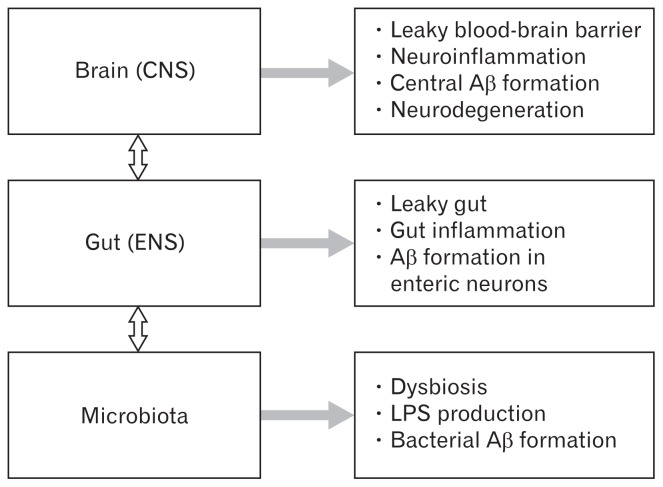Figure 2.
Disturbances of the brain-gut-microbiota axis in Alzheimer’s disease. Disturbances along the brain-gut-microbiota axis, including the central nervous system (CNS) and the enteric nervous system (ENS), contribute to the pathogenesis of Alzheimer’s disease. The gut microbiota is known to upregulate local and systemic inflammation due to lipopolysaccharides (LPS) from pathogenic bacteria and synthesis of proinflammatory cytokines. Alterations in the gut microbiota composition may induce increased permeability of the intestinal barrier and the blood-brain barrier further enhancing inflammation at the gut, systemic and CNS levels. Amyloid beta (Aβ) formation takes place in the ENS and the CNS. In addition, a large amount of amyloids is secreted by the gut microbiota.

